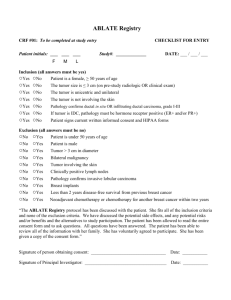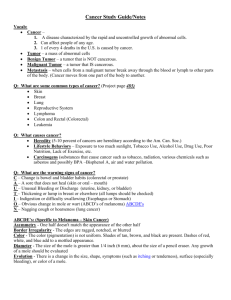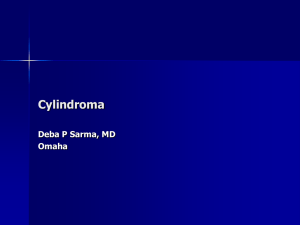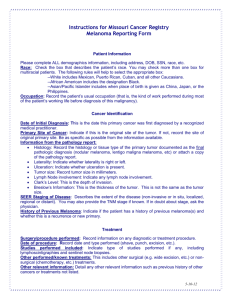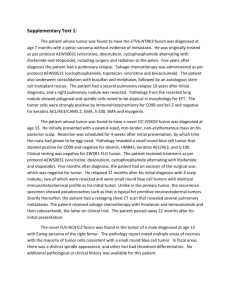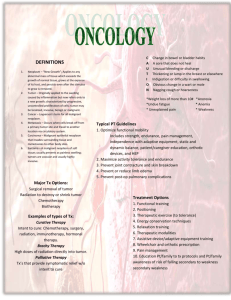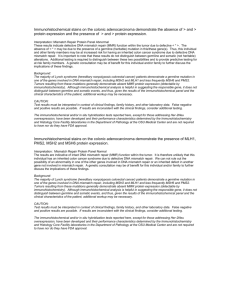Sample MSS and MSI-low report - Lynch Syndrome Screening
advertisement
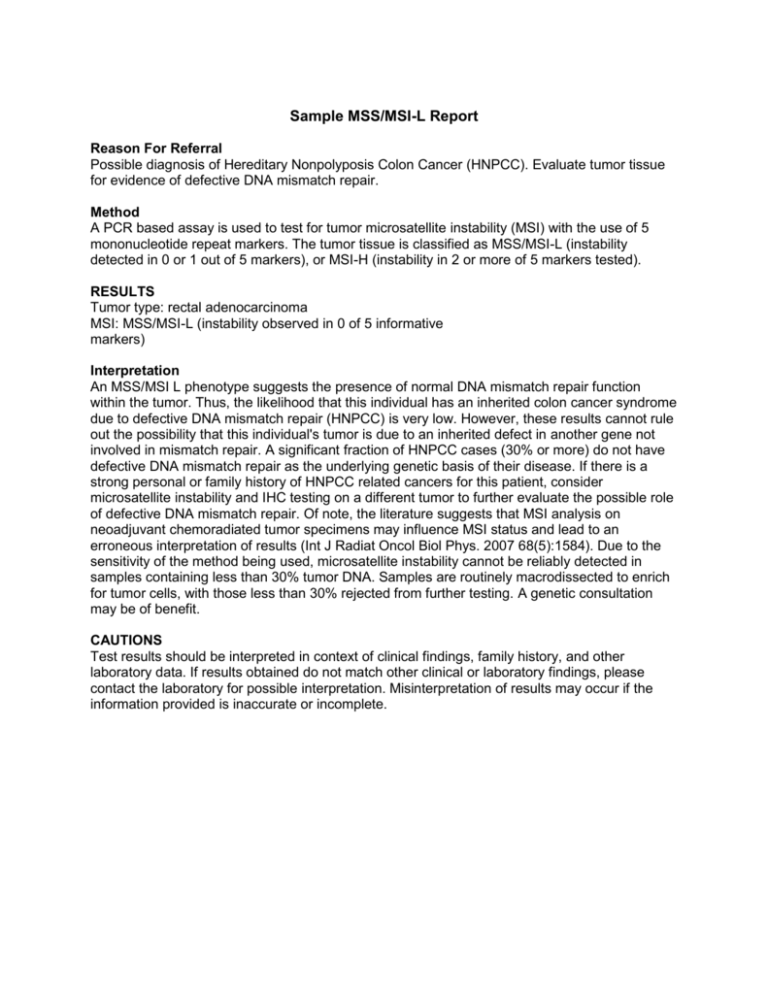
Sample MSS/MSI-L Report Reason For Referral Possible diagnosis of Hereditary Nonpolyposis Colon Cancer (HNPCC). Evaluate tumor tissue for evidence of defective DNA mismatch repair. Method A PCR based assay is used to test for tumor microsatellite instability (MSI) with the use of 5 mononucleotide repeat markers. The tumor tissue is classified as MSS/MSI-L (instability detected in 0 or 1 out of 5 markers), or MSI-H (instability in 2 or more of 5 markers tested). RESULTS Tumor type: rectal adenocarcinoma MSI: MSS/MSI-L (instability observed in 0 of 5 informative markers) Interpretation An MSS/MSI L phenotype suggests the presence of normal DNA mismatch repair function within the tumor. Thus, the likelihood that this individual has an inherited colon cancer syndrome due to defective DNA mismatch repair (HNPCC) is very low. However, these results cannot rule out the possibility that this individual's tumor is due to an inherited defect in another gene not involved in mismatch repair. A significant fraction of HNPCC cases (30% or more) do not have defective DNA mismatch repair as the underlying genetic basis of their disease. If there is a strong personal or family history of HNPCC related cancers for this patient, consider microsatellite instability and IHC testing on a different tumor to further evaluate the possible role of defective DNA mismatch repair. Of note, the literature suggests that MSI analysis on neoadjuvant chemoradiated tumor specimens may influence MSI status and lead to an erroneous interpretation of results (Int J Radiat Oncol Biol Phys. 2007 68(5):1584). Due to the sensitivity of the method being used, microsatellite instability cannot be reliably detected in samples containing less than 30% tumor DNA. Samples are routinely macrodissected to enrich for tumor cells, with those less than 30% rejected from further testing. A genetic consultation may be of benefit. CAUTIONS Test results should be interpreted in context of clinical findings, family history, and other laboratory data. If results obtained do not match other clinical or laboratory findings, please contact the laboratory for possible interpretation. Misinterpretation of results may occur if the information provided is inaccurate or incomplete.


